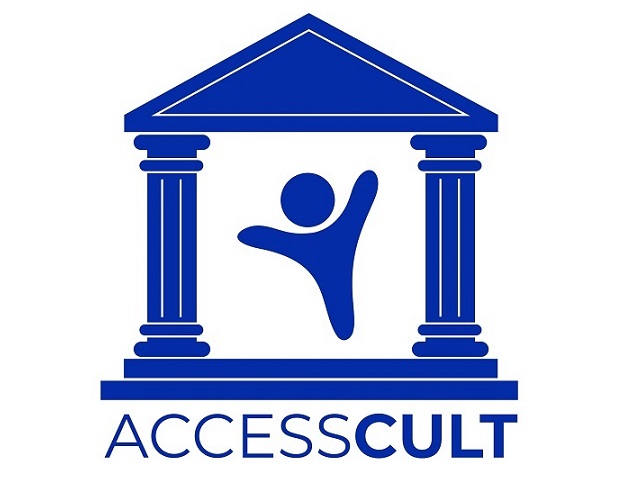Since the 1st of September, 2020, INFAD Association is participating in a new Erasmus + project: ACCESSCULT, funded by the UE and with a duration of 30 months.
ACCESSCULT is addressed at the lack of :
- EQUAL (learning) OPPORTUNITIES for People with Disabilities in EU in the area of Cultural Heritage
- HOLISTIC APPROACH towards Cultural Heritage accessibility solutions, as they are often short-term and without sustainable thought; provide basic know-how and don’t give full understanding of complexity and diversity of PWDs needs; focus only on specific visitors’ needs or on specific solutions e.g. ICT, physical accessibility etc.; are non-participatory and thus don’t impact the real lives of PWDs
- ACCESSIBILITY KNOWLEDGE AND SKILLS among Cultural Heritage workers
- formal IN-DEPTH ADULT TRAINING for existing Cultural Heritage workers
- MULTIDISCIPLINARY Higher Education COURSES within the existing study programmes (e.g. museology, heritology, special education etc…), producing new CH accessibility experts.
OBJECTIVES:
- Improvement of socio-cultural, educational and research synergies and new partnerships between Higher Education Institutions, cultural and disability sectors.
- Ensuring education and research in multidisciplinary area of inclusive and accessible cultural heritage;
- Implementation of necessary changes helping for Higher Education Institutions, museums and art galleries to have a greater understanding of the needs of disabled visitors;
- Engagement of PWDs into the development process as advisors, co-creators and finally as evaluators of the project ;
- Development innovative accessibility solutions which allow people with disabilities to fully enjoy cultural and historical heritage;
- Sharing best practices in improving skills and competences of cultural institutions (museums, art galleries etc.) and students to work with disabled people, creating access to cultural heritage.
- Development of Higher Education module with strong inclusive elements to improve the knowledge, skills and competencies of key stakeholders according to professional heritage interpretation standards to enable them to respond to the needs of physically, visually, hearing, intellectually or mentally disabled visitors, so they in turn are able to fully access and benefit from their cultural heritage.
- Sustainable exchange of best practices and know-how as well as an assistance for museums to develop accessible exhibitions and activities;
- Preparation of teaching / learning materials for HE and cultural sectors staff and textbook ‘Accessible Cultural Heritage for ALL
- Preparation of Website and EU Point (Accessibility of Cultural Heritage)
- Recommendations and guidelines for follow-on activities in the field in EU.
